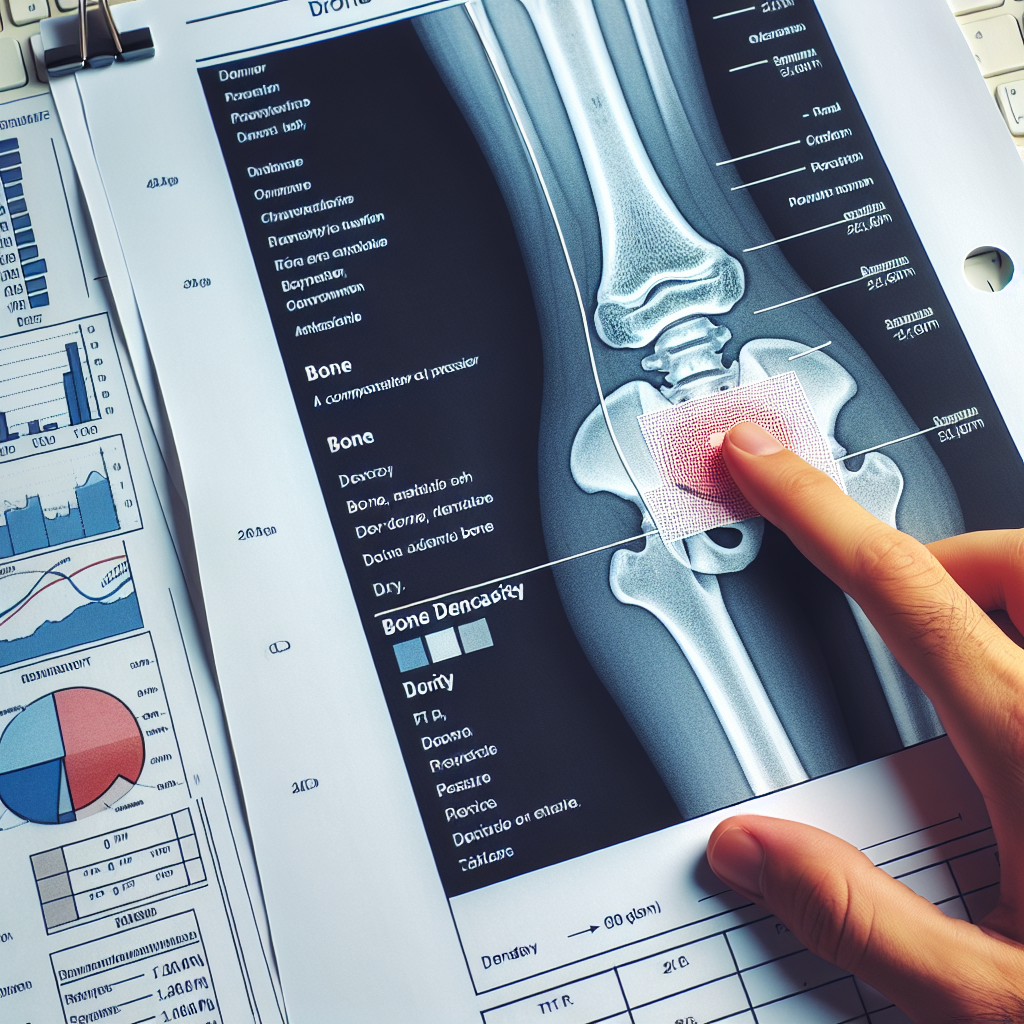Bone density tests, often referred to as DEXA scans or bone densitometry, are essential tools for diagnosing osteoporosis and other conditions that result in bone loss. These non-invasive tests measure the mineral content of your bones, providing crucial insights into your bone health and helping to predict your risk of fractures.
Why is Bone Density Important?
Bone density is a key indicator of bone strength and health. Bones that are dense have a higher mineral content, which generally means they are stronger and less likely to break. Over time, our bones can lose density due to aging, hormonal changes, and lifestyle factors, leading to conditions like osteoporosis. Understanding the state of your bone health is vital, especially as you age, to prevent unexpected fractures and maintain mobility.
What to Expect During a Bone Density Test?
A bone density test is a quick and painless procedure usually completed within 10 to 30 minutes. You will be asked to lie on a padded platform while a machine scans one or more areas of your body, typically the hip and spine. It is important to remain still during the test to ensure accurate results.
Who Should Get Tested?
Bone density testing is recommended for:
- Women aged 65 or older and men aged 70 or older.
- Anyone who has broken a bone after age 50.
- Postmenopausal women under 65 with risk factors for osteoporosis.
- Men between 50 and 69 with risk factors for osteoporosis.
For a deeper understanding of bone health and the factors that affect it, consider reading about Bone Health.
Interpreting Your Results
The results of a bone density test are reported as T-scores and Z-scores:
- T-score compares your bone density with that of a healthy young adult of the same sex. A score above -1 is normal, between -1 and -2.5 indicates low bone density or osteopenia, and below -2.5 is diagnosed as osteoporosis.
- Z-score compares your bone density with what’s expected for someone of your age, sex, weight, and ethnic or racial origin. A score significantly lower than the average could suggest other factors are causing bone loss.
What If You Have Low Bone Density?
If your test results show low bone density, your healthcare provider will evaluate your risk factors for fractures and discuss prevention strategies. These may include lifestyle changes, dietary adjustments, exercise routines, and possibly medications. For instance, incorporating Calcium in Bone Strength and understanding the Vitamin D and Bone Health Connection are important steps in managing bone density.
Improving Bone Density
While genetics play a significant role in bone health, lifestyle choices can influence bone density. Here are some strategies:
- Nutrition: Adequate intake of calcium and vitamin D is crucial for bone health. Foods rich in these nutrients should be a part of your diet.
- Exercise: Weight-bearing and muscle-strengthening exercises can help maintain bone density.
- Healthy Habits: Avoiding tobacco and excessive alcohol consumption can benefit your bones.
For tailored advice, reading about Exercise Routines for Improving Bone Density can be beneficial.
Beyond Bone Density Tests
Bone density tests provide valuable information, but they’re just one part of a comprehensive approach to bone health. Your healthcare provider may also recommend other assessments and tests, depending on your individual risk factors and health status.
For further reading, external resources like the National Osteoporosis Foundation provide detailed information on bone density testing and osteoporosis. Academic studies published in journals such as Osteoporosis International can offer insights into the latest research on bone health and disease prevention.
When to Retest?
The frequency of bone density tests depends on your initial results and overall health. Your healthcare provider will recommend when you should be retested based on factors such as:
- Your age.
- The results of your first test.
- Any change in your health or medication that might affect bone density.
For those interested in the effects of aging on bone health, exploring resources like the International Osteoporosis Foundation can provide in-depth information.
Conclusion
Bone density tests are a critical component in the early detection and management of bone loss and osteoporosis. By understanding your bone density, you can take proactive steps to maintain bone health and prevent fractures. Remember, it’s never too early or too late to start caring for your bones.
For comprehensive coverage of bone health throughout different life stages, consider reading about Bone Health at Different Life Stages, which offers valuable insights into maintaining strong bones from youth to old age.



